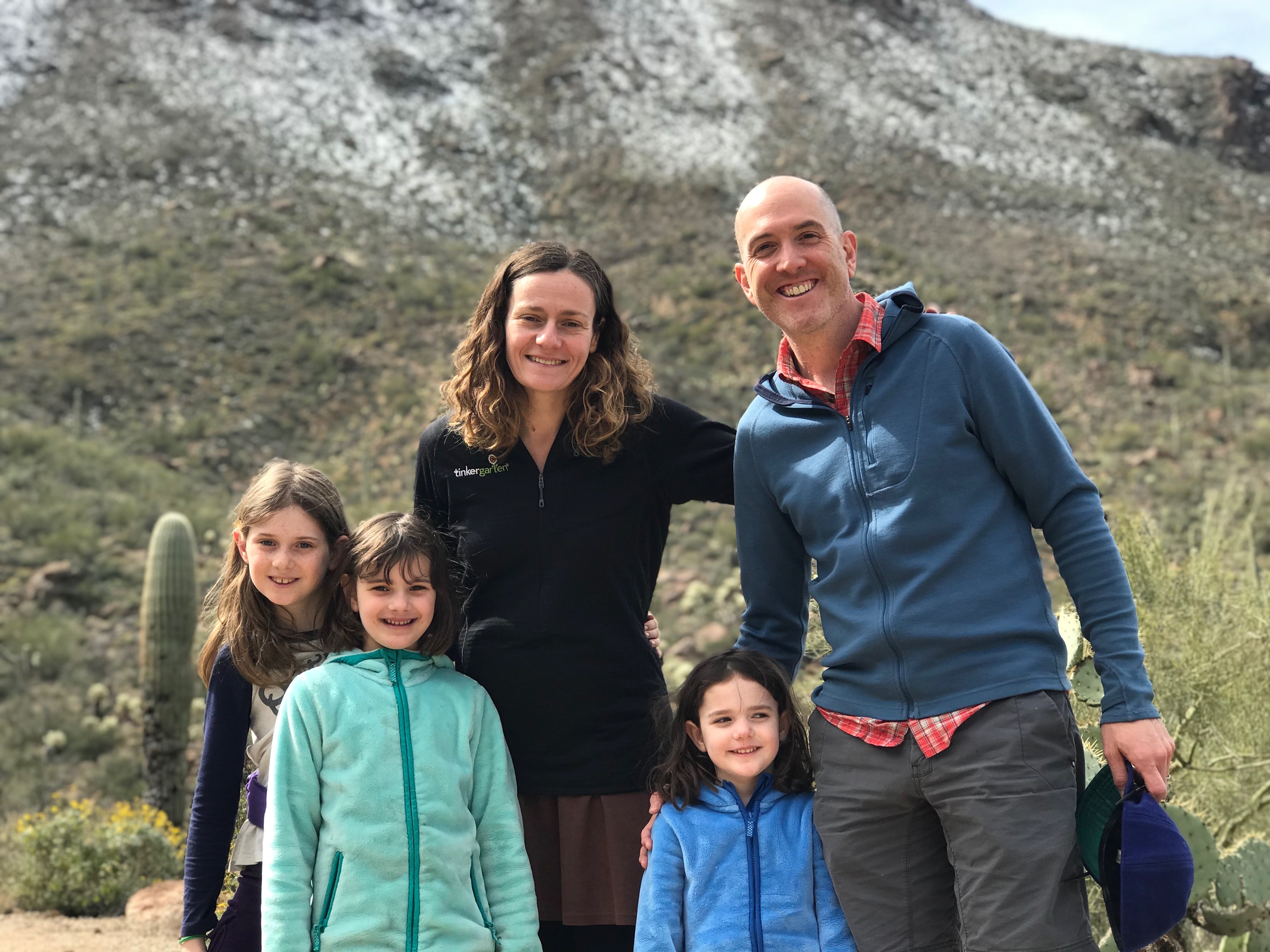A few years ago now, on a family trip, we fell into a classic trap. We got super bummed that our kids were stinkers on what was supposed to be an amazing family hike.
30 minutes in, on came the whining, bickering, and mathematically impossible 3-way struggle to “go first.” The stakes felt high. Our “we flew all this way” and “we are so lucky to be here...come ON, guys” did not help. One kid pushed into a prickly pear later, we ended our hike defeated and pretty disappointed in our team.
That night, my husband and I reviewed the day as our hikers slept. Should we try again tomorrow? Throw in the towel? Why were the kids acting that way?
We started imagining the dream hike, listing words like long, whine-free, harmonious, peaceful and continuous. Then, we tried to imagine any 24-hour period during which our trio consistently earned these descriptors, and we just laughed. What were we thinking?!
Our struggle is part of parenthood
As we talked, I remembered that, not only are our kids growing and changing, but we adults are still developing too. Researchers and theorists even have names for stages of adult development; stage 1 of parenting, says Ellen Galinsky, is a time of “Image-Making.”
What Galinsky is referring to is the natural process of imagining parenthood and then coming to understand and respond to the reality of it. Even before our babies come into our lives, we start to picture parenthood, envisioning what lies ahead. As we move through each stage of parenthood, we carry these images with us. When reality inevitably presents itself, we respond by either adjusting our visions to match reality or by trying to change our own behavior to better match our preexisting images (a challenging path, for sure).
Forcing our kids to conform to our image of ideal family hiking was clearly not working. What was it about our expectations on hikes that we needed to adjust?
First, our quest for the perfect family hike was completely unrealistic. Seems obvious now, but we were unwittingly blowing the beauty of the moment we were in for some elusive promise of perfection.
Further, there is no way to build kids’ stamina without pushing their limits. They’ll get hungry, tired and express the feelings we all feel when we exert ourselves. But learning to feel and manage a little struggle will serve our kids well. The only ones really suffering were us, caught in the chasm between our vision of “family hikes” and the real deal.
Reimagining family hikes
So, the next day, we got right back out there, but with lower expectations. The kids didn’t behave all that differently, but our experience was transformed.
Since this trip, we’ve been talking with friends and colleagues have shared stories of their family hikes, speckled with challenging moments.
Here are some tips and tricks from other parents who’ve had to reimagine their own perfect family hikes:
-
Think longer term: It was game changing when my pediatrician told me not to sweat how much the kids eat in each meal, but to think about it over the course of a month. If you apply the same mindset to hikes, a month full of small walks in the woods starts to feel just as good, and maybe even better, as one or two long (and likely more fraught) hikes.
-
Focus on the journey, not the destination: Try not to fall for the promise of reaching a summit or killer view point. Just walk and go at the pace the group sets. That doesn’t mean you can’t encourage the team to pick up the pace a bit here and there, just don’t get discouraged if they remain slow or if the path you take veers off the charted course.
-
Expect and even embrace some struggle: Hiking requires exertion, and young kids work hard to cover a distance. It is great for them, but it is asking a lot. So, be ready to see them express the effort they’re putting forth. That doesn’t mean this is harming them, or that they can’t take it.
-
Build in snacks you all love: Favorite snacks make any activity sweeter for kids. Plus, breaks and boosts of energy help keep young kids going.
-
Repeat a favorite hike: Adult brains love novelty, but kids learn a ton when they get to repeat the same thing over and over. Plus, there are endless discoveries to make on the very same stretch of trail. Don’t be afraid to repeat what works for your team.
-
Use field guides: If you have photos or field guides that you can use to identify local plants and animals, kids can be on the lookout for them. Let kids hold them and feel a sense of ownership of the search. Field guides can stoke curiosity, build stewardship and give us a reason to slow down and care for the flora and fauna around us. We love these Audubon recommended bird guides for kids. Ask for field guide recommendations from your local nature center and search online for regional kid-friendly guides. You can also use free nature identification apps like PlantSnap to identify new plants, or Merlin to quickly identify birds by your location and only a few details you notice about the birds!
-
Take sensory breaks. Every so often, stop and close your eyes. Wonder what you smell, hear or feel. Our kids love these chances to “see with our other senses,” and it supports their sensory development, too (win-win).
-
Manage collections: Collecting is marvelous for kids, and it can make time outdoors fun and engaging. But kids and parents can get weighed down with so many treasures. To keep this manageable and teach kids not to remove too much from the trail, identify a small bucket, bag or container for collecting. Then, the rule is, you can stop to observe and love any object, but you can only tote along what fits in the container at any given time.
-
Keep a hiking passport. Download your state or the national park passport. Make a chart or notebook and put a stamp or checkmark every time you take a hike. Leave the chart in the car so your kids can add a stamp, the date and notes about each hike. This concrete reward reinforces the value of your hikes!
-
End with gratitude: At the end of your hike, stop to share what made you most grateful today. Even if someone was pushed into a prickly pear, you can still end on a high note of shared thanks for the endless gifts nature provides.

